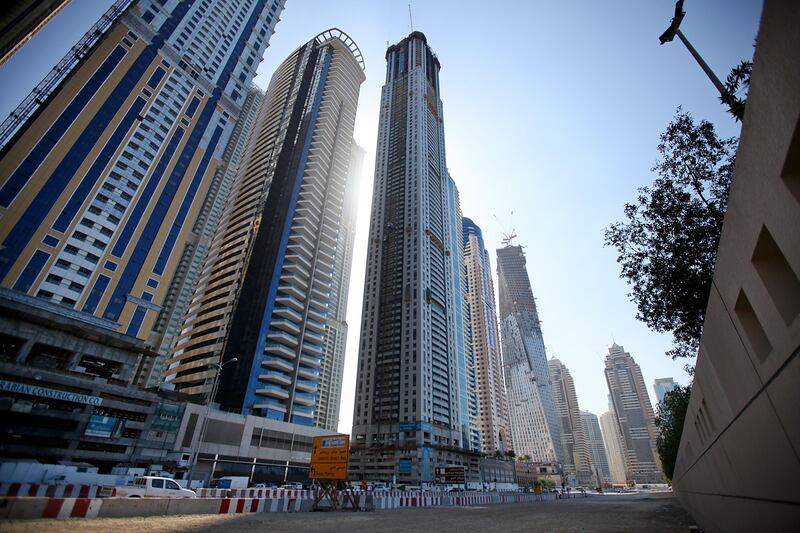Dubai rental and home prices eased for a second straight quarter on the back of rising supply, according to Asteco, the Dubai-based real estate services firm.
Apartment prices fell 2 per cent quarter-on-quarter and 7 per cent year-on year, the company said. Housing supply is expected to double in 2017 to 17,700 units compared to 8,750 in 2016, according to Asteco. The growing supply is likely to amplify the downward price pressure in the second half of the year, the agency said.
That's good news for tenants who are now in a strong position to negotiate better deals for themselves, the agency said.
"Market conditions have served to strengthen the negotiating position of many residential and commercial tenants," said John Stevens, managing director at Asteco.
"Many existing tenants have taken this opportunity to renegotiate their lease terms [on expiry of contracts], or when faced with intransigent landlords, opted to relocate in search of more attractive terms."
In the second quarter average quarterly sales for apartments slid 3 per cent, while villas and offices each dropped 2 per cent. On average, apartment sales fell because of what the agency said was a rising number of affordable project launches, more flexible payment options. The biggest declines were registered in International City and Dubai Marina, with price drops of 7 per cent. Properties in Jumeirah Village and Discovery Gardens fell 6 per cent while prices in Downtown Dubai slipped 5 per cent.
When it came to rentals in the second quarter, Downtown Dubai registered the biggest year-on-year rental decline, while rents in Jumeirah Beach Residence and The Greens fell 4 per cent. On an annualised basis, rents in Business Bay, Downtown Dubai, Deira and International City fell by 14 per cent, 12 per cent and 11 per cent.
Looking forward, the agency sounded a cautious tone concerning any possible uptick in prices before an increase in government spending trickles down to the real economy.
"We do not expect the market to recover until economic sentiment improves in line with increased government spending, further implementation of diversification strategies and the anticipated gradual rise in oil prices," Mr Stevens said.






